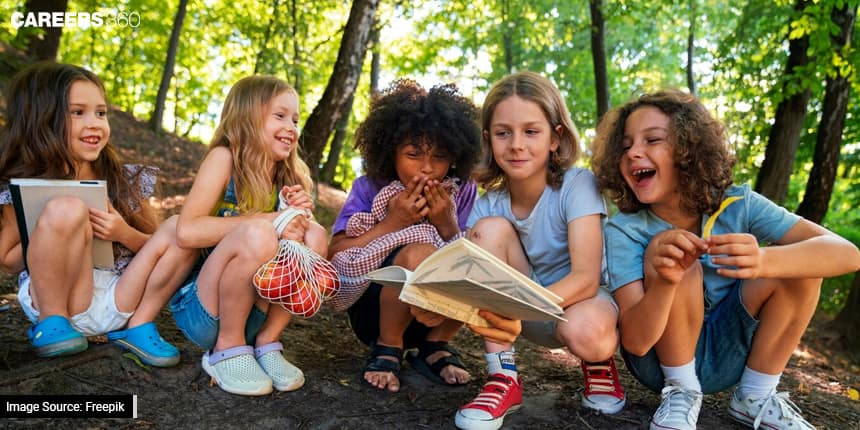Why Are Field Trips An Important Mode Of Learning?
Field trips are a valuable and exciting aspect of a child's education. They provide a break from the classroom routine and offer hands-on learning experiences that stimulate a child's curiosity, understanding and imagination. In India, a country rich in cultural, historical, and geographical diversity, field trips hold even greater potential to enhance children's education.

This article explores the benefits of field trips for children, emphasising their role in holistic development and promoting a deeper understanding and appreciation for their nation's heritage, natural wonders, and significant sites.
Learning Through Real-World Experience
Field trips take children out of the traditional classroom setting and give them real-world experiences. Whether it's a visit to a historical monument like the Taj Mahal, an interactive trip to a science museum, or an excursion to a nearby forest, these experiences provide tangible connections to what children learn in textbooks and hear in the classroom.
In India, where history is rich and diverse, walking through historical sites, such as the Red Fort, Ajanta Caves and Taj Mahal etc, can bring history lessons to life. These real-world encounters help children enhance their appreciation towards things they learn in their classes. It also provides them opportunities to connect with the past and gain a deeper understanding of history. All these can be an important part of their education and personality development.
Also Read | Orienteering: An Unconventional Sport That Enhances Navigation Skills And Promotes Outdoor Adventure
Encouraging Curiosity and Critical Thinking
Field trips stimulate curiosity and encourage children to ask questions. When children are in a new environment, they become naturally curious and start to observe, analyse, and ask about their surroundings. This process of inquiry and critical thinking is valuable for their cognitive development. For instance, a visit to a botanical garden or a wildlife sanctuary can spark children's interest in biology and ecology, thus encouraging love for science and nature.
Promoting Cultural Awareness and Heritage Preservation
India is a nation with a rich cultural diversity, and field trips play a vital role in preserving and promoting this heritage. Visits to these places expose children to the country's diverse cultural heritage, languages, traditions, and art forms. For example, a trip to Varanasi or Haridwar can introduce children to the vibrant cultural and religious practices along the Ganges - the largest river in India as taught in Geography syllabus while also instilling an appreciation for the country's spiritual history.
Social and Emotional Growth
Field trips provide opportunities for social interaction and bonding among children. They learn to collaborate, share, and communicate with their classmates and teachers in different environments. These experiences help children develop empathy and emotional intelligence.
Also Read | 5 Olympic Sports That Young Kids Can Train In
Connecting with Nature
India boasts a stunning array of natural landscapes, from the majestic Himalayan mountains to beautiful beaches and lush forests. Field trips to these natural wonders help children develop a deep connection with the environment. Visits to national parks, like Ranthambore or Jim Corbett, promote an understanding of wildlife conservation and the importance of preserving India's diverse ecosystems.
Educational Resources
Field trips can bridge the gap in access to educational resources. In India, where educational disparities exist and not all children are privileged to afford such visits, field trips offer them the opportunity to explore resources and environments they may not have access to otherwise. This inclusivity promotes a more equitable education system.
To conclude, field trips are an integral part of a child's educational journey, offering countless benefits that go beyond the classroom. In India, with its rich cultural heritage, diverse landscapes, and educational disparities, field trips can play a crucial role in promoting holistic development, cultural awareness, and environmental consciousness among children.
Also Read | How Can Pinterest Help You Plan Your Career Goals?
Applications for Admissions are open.
As per latest syllabus. Physics formulas, equations, & laws of class 11 & 12th chapters
JEE Main Important Chemistry formulas
Get nowAs per latest syllabus. Chemistry formulas, equations, & laws of class 11 & 12th chapters
JEE Main high scoring chapters and topics
Get nowAs per latest 2024 syllabus. Study 40% syllabus and score upto 100% marks in JEE
JEE Main Important Mathematics Formulas
Get nowAs per latest syllabus. Maths formulas, equations, & theorems of class 11 & 12th chapters
